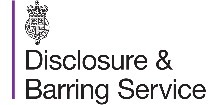
Specialists in pre-employment screening and employment validation
Protect the future of your company, by knowing your employees past with our tailored pre-employment screening solutions.

Specialists in pre-employment screening and employment validation
Protect the future of your company, by knowing your employees past with our tailored pre-employment screening solutions.
JH Ltd is committed to providing responsible pre-employment screening and employment referencing solutions. Solutions that are both cost efficient and time effective.
At the heart of our company is our commitment to quality service and screening products while paying attention to every detail.
We are an Independent UK based company with International reach. We offer bespoke screening solutions, tailored specifically to your industry requirements and your needs. We are fully compliant with the information necessary to comply with FCA legislation, regulations that govern the Aviation and Maritime industries and security legislation for the Department of Transport.
Your business is dynamic, complacency is not an option.
Protect your business
Employ only individuals of high integrity
Intuitive candidate experience
Easily understood reporting
Staff Verification: Ensuring Accuracy and Credibility
Screening levels refer to the different stages or tiers of assessment and verification conducted during the pre-employment screening process. These levels are designed to gather progressively more detailed information about a candidate's background and suitability for a particular position.
Financial
Historically the Banking & Financial industry has always maintained the highest standards in ensuring that it’s employees have the knowledge, skills and expertise necessary.
Charities/Volunteers
Within pre-employment screening, specific screening measures are implemented to assess individuals who are seeking to work or volunteer in the charity sector, ensuring the safety, integrity, and suitability of candidates for roles within charitable organizations.
Legal
Specific measures are in place to assess individuals seeking employment in the legal sector. This screening aims to verify their qualifications, credentials, and adherence to professional standards.
Utilities & Energy
Thorough background checks help safeguard critical infrastructure, protect customer data, maintain workforce integrity, enhance public trust, and mitigate liability and financial risks. By verifying the qualifications, experience, and credentials of employees, utilities and energy providers can build confidence in their ability to deliver reliable and trustworthy services while minimizing potential risks and liabilities.
Our background screening checks encompass all areas of identity verification checks, criminal record and due diligence. We offer employment specific services such as ID, Right to Work, employment verification and gap checks, education, directorship checks, regulatory and professional membership. Our media searches include printed and electronic media while our sanctions/watch list checks encompass global law enforcement agencies.
About us
Being a successful business for over 20 years we have seen the screening landscape evolve and are at the forefront of that evolution, creating bespoke solutions that exactly match your requirements.
You are never just 'another client', we encourage a full engagement solution with you. Each client has their own dedicated account manager who remains your contact point at all times, supported by an experienced team of researchers and screeners.
Build the ideal work force
We are fully independent and focussed on fulfilling our client’s employment screening needs. All clients have a dedicated account manager who is personally responsible for your screening requirements. At an initial meeting we ensure that we fully understand your individual requirements and your objectives. Likewise because our focus is on reducing your workload we take as much of the process away from you as you’re comfortable with and then provide you with the facts to make credible and responsible decisions.
1.
Choose your Screening Level
We have a wide range of screening levels to suit your industry and requirements. We will also tailor our screen levels to your company.
2.
Thorough Identity Verification
We complete in-depth identity verification and background checks to provide piece of mind and compliance.
3.
Screening Checks
Our team of dedicated staff complete detailed screening and checks. Our unique online portal provides you with progress reports.
4.
Presentation of Findings
Once all verification and screen checks have been completed, we will provide you with reports to allow you to make informed decisions.
Choose your Screening Level
We have a wide range of screening levels to suit your industry and requirements. We will also tailor our screen levels to your company.
Thorough Identity Verification
We complete in-depth identity verification and background checks to provide piece of mind and compliance.
Screening Checks
Our team of dedicated staff complete detailed screening and checks. Our unique online portal provides you with progress reports.
Presentation of Findings
Once all verification and screen checks have been completed, we will provide you with reports to allow you to make informed decisions.



To find out more how we can complete your pre-employment screening goals, please contact us using the details below or via our contact form.



